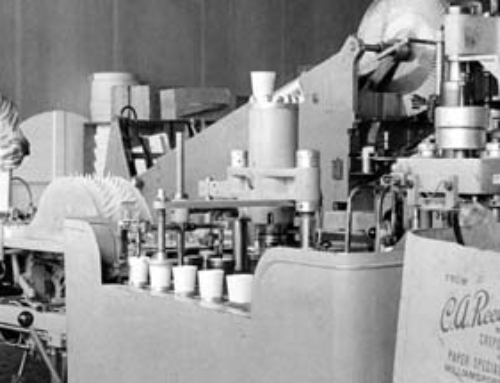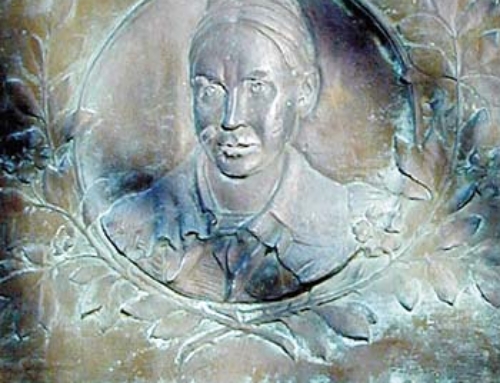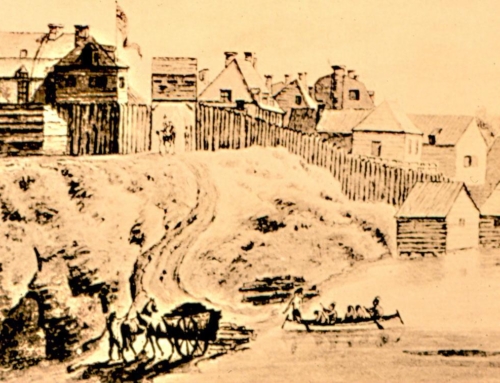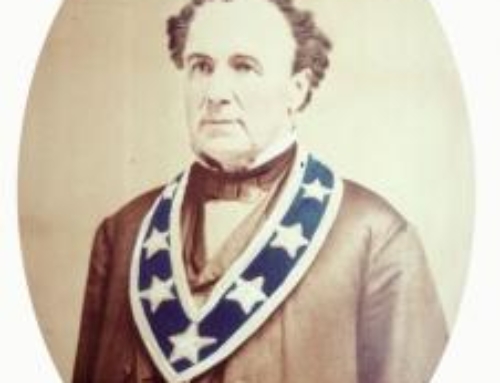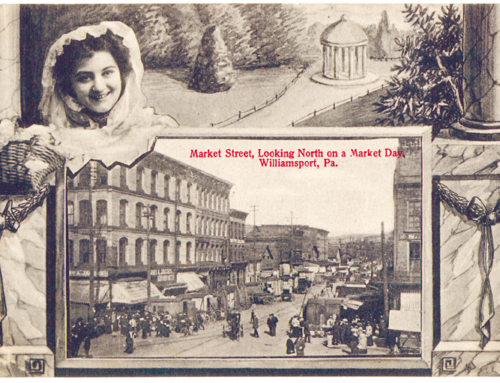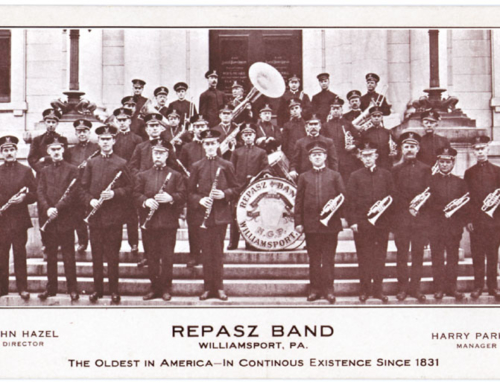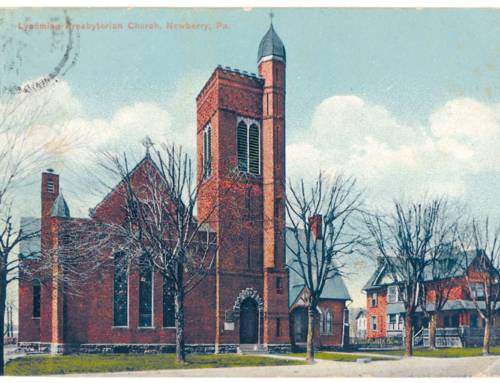One of the most influential political movements in America and in Lycoming County in the late 19th and early 20th centuries was the Prohibition movement.

Lips That Touch Liquor Shall Not Touch Ours, satirical photograph of teetotaller women, still from c. 1890s movie filmed in Edison’s Black Maria studio
The guiding light for this movement in Lycoming County was a Williamsport dentist named Dr. C.W. Huntington. Much of the information in this article is gleaned from an address that the late Judge Charles Scott Williams made to the Muncy Historical Society in February 1963, which appeared in the society’s publication, “Now and Then.”
Huntington owned an edited a newspaper devoted to the cause of Prohibition called “The Index” in April 1892. In that first issue he summed up what he and the Prohibition believed, writing in part, “If you feel that you ought to help wipe out the curse of the 19th century-the saloon-make up your mind NOW that you will hereafter vote with the only party that the saloon element fears, the Prohibition Party.”
At first Huntington and the rest of the adherents of Prohibitionism were regarded by the two major political parties as eccentric cranks and crackpots. They looked upon them with a sort of bemused contempt.
The officers of the Prohibition Party in their first year of existence in 1892 were Huntington, Herbert T. Ames, who later became mayor of Williamsport, J.H.B. Reese, John Otto and Kimball S. Miller. Several of these men were prominent business leaders in the community. Reese was owner of the Williamsport Paper Box Company, and Otto was superintendent of the South Williamsport Land Company.
Both political parties sat up and took notice when James Mansel, the Prohibition Party candidate, was elected mayor of Williamsport in February 1896. The vote was Mansel, 2,257; Williams, Republican, 1,909; and Corel, Democrat, 1,420.
Huntington described how Mansel’ stunning victory quickened the hearts of Prohibition Party partisans on election night. “At Mansel’s headquarters the crowd was large, when the first precinct of the Fifth Ward rung the phone and announced 119 votes for Mansel to Williams’ 132. A shout of victory went up, for it was recognized at once by competent judges that it meant Mansel’s election; reports followed, quickly each bringing a cheering and as assurance increased the crowd augmented and reports came from Republican and Democratic headquarters that were quiet and disconsolate.”
Huntington continued, “At midnight an open barouch (carriage) was driven up accompanied by the Repasz Band and Mr. Mansel being seated in the carriage the remaining seats were quickly filled by those nearest and an immense parade took place; The march was from Government Place to the square, returning up Rose Street, to Memorial Avenue to Park Avenue, disbanding at the home of Mr. Mansel. All along the line of march was a continuous din of bells, horns, cheers and yells awakened and disturbed disgruntled defeated parties.”
Another election jolt for the two major parties came on Election Day, November 2, 1897, when Dr. Silas Swallow, Prohibitionist Party candidate for State Treasurer, received more votes of Lycoming County voters than the candidates for the other two major parties. This was especially embarrassing to state Attorney General McCormick, a Williamsport resident who was in Governor Hastings’ cabinet at the time.
One of the major events of each year for the Prohibitionists was their annual summer picnic, usually held at Sylvan Dell.
Huntington and the Prohibitionists were also active in fighting the granting of liquor licenses. One of the ways they did this was publish in “The Index” the names of the applicants, their petitioners and their bondsmen.
The Prohibition Party had its headquarters in the Mussina Building on the northwest corner of Market Square, the building was sometimes known as “Prohibition Hall.”
Huntington and the Prohibitionists considered tobacco an evil, as well. Huntington wrote, “We wish to enter a friendly protest against the use of the filthy, loathsome stuff called tobacco. It generally blunts the sensibility of politeness, and the smoker will enter a room or office where smoking is not only distasteful but decidedly objectionable…When will gentlemen cease to use this vile weed?”
Huntington’s paper, “The Index,” as well as many Prohibitionists were for a curfew, public ownership of water, light and power and for women’s suffrage. They were against houses of prostitution.
The last major campaign of the era that the Prohibitionists figured prominently in was the race for Lycoming County judge in 1898. Prohibition stalwart Herbert T. Ames ran against incumbent Judge John J. Metzger. The Prohibitionists went all out to unseat Metzger. He had incurred their wrath for his liberal granting of liquor licenses. Metzger further infuriated the Prohibitionists because his son, G.B. M. Metzger, often represented tavern owners in their hearings for licenses.
Metzger was a powerful figure. He was considered the Democratic boss of Lycoming County and had the support of all area newspapers, as well as some of the most powerful, moneyed men of Williamsport, some of whom were major lumber figures, such as J, Henry Cochran and Seth T. McCormick.
With odds stacked against him, Ames fought an honorable and spirited campaign but was defeated 9,529 to 5,730.
Ames’ political career was not over however. At the age of 83 in 1927, he was elected mayor of Williamsport, as a Prohibitionist. Ames’ election marked the last hurrah of a very interesting and colorful chapter in the area’s political history.
By Lou Hunsinger Jr., Williamsport Sun-Gazette


